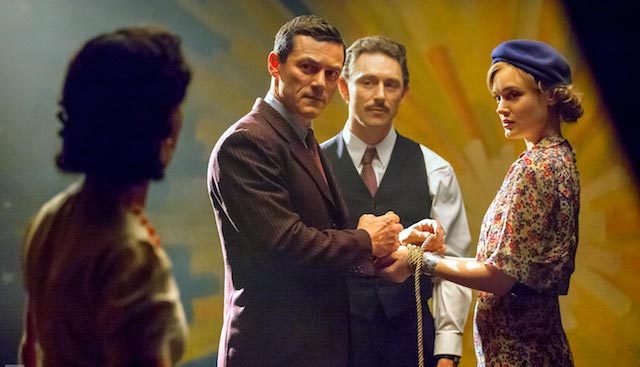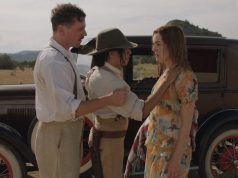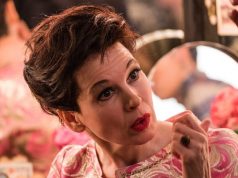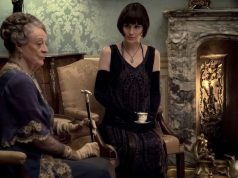
“Wonder Woman‘s” fresh take on the superhero-origins movie was a welcome addition to a stagnant genre. Now here’s “Professor Marston and the Wonder Women,” the story of how the character was created — a superhero-origins-origins movie — subverting the traditional biopic formula with affection, humor, and an irresistible “love is love” philosophy.
Written and directed by Angela Robinson (“D.E.B.S.,” “Herbie: Fully Loaded”), the fascinating true story stars Luke Evans as William Moulton Marston, a psychology professor at Radcliffe College (Harvard for ladies) in the late 1920s whose social theories are ahead of their time. He’s developing a thesis about domination and submission as healthy components of a relationship (and not affixed to either gender), and in class he jokes about the possibility of women being leaders someday. His all-female classroom giggles, but he means it.
William’s wife, Elizabeth (Rebecca Hall), is outspoken and intelligent, an equally competent scientist who would have the same degrees as her husband if Harvard didn’t refuse to give them to women. (Elizabeth is the first person in the movie to use a major profanity, which she does boldly; it’s an interesting insight into the times that later on, when the word “pornography” comes up, she whispers it.) The Marstons aren’t jealous of one another romantically (professionally, maybe), and have what we might today call an “open marriage,” at least in principle. They’re fond of one another as individuals and as scientists, and they enjoy working together. There’s a priceless moment when they’re hiding upstairs at a sorority house to make scientific observations of a homoerotic hazing ritual but can barely stifle their laughter over the self-serious absurdity of it.
These progressive, unenvious attitudes make the Marstons amenable when a beautiful grad-school assistant, Olive (Bella Heathcote), signs on to help with their research into developing a lie detector, and, in short order, the three all sort of fall in love with each other. Polyamory raises eyebrows in 2017; you can imagine how it went over during the Depression.
Lest we forget where this is going, the film is framed by scenes set in 1945 where William is defending his Wonder Woman comic book against a panel of prudes (led by Connie Britton) who take issue with the frequent appearance of bondage themes in it. (Apparently Wonder Woman and the other characters used to tie each other up a lot.) This framing device is one of the few nods to the standard biopic formula that Robinson allows herself, otherwise telling the story with energetic, stylish candor and finding humor wherever it arises. A film that involves love and a lie detector can’t help but exploit the potential comedy in that, right?
Something the film does not exploit, however, is the sexuality. Though William, Elizabeth, and Olive are polyamorous, Robinson doesn’t swell on the titillating details. There’s no nudity; in one scene where Evans is naked, the camera stares at him but only at chest-level, respectfully not panning down until he puts his pants on. The scene where the trois is first ménaged is erotic and sexy, but it’s also self-aware: it’s shot like a steamy music video, and it takes place on an empty theater stage at the college, underscoring the performative nature of it all. Robinson seems to wink at us: Is this what you wanted to see, you naughties?
It’s great fun to watch these three characters grapple with unorthodox emotions and experiment with fetishes in a non-melodramatic fashion. Most tellings of this story would emphasize the threesome’s conflicts and difficulties, but Robinson focuses on their happiness. William Marston’s progressive attitudes about gender equality are celebrated — “I’m going to inject my ideas into the beating heart of America!” he cheerfully declares after choosing the comic book as his medium — and the thoughts and desires of the women in his life are given equal weight. It’s a movie that looks forward by looking backward, executed with sly, empowering confidence.
B+ (1 hr., 48 min.; )





